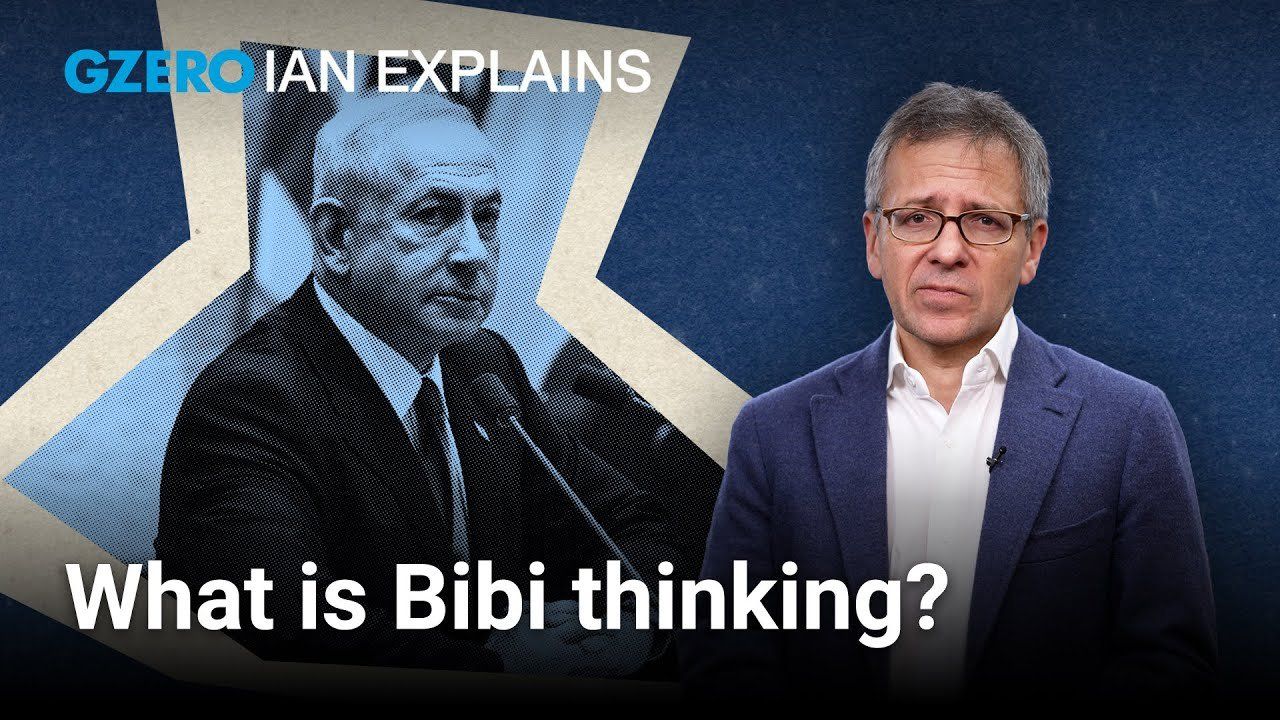Ian Explains
Ian Explains: Why Israel's Netanyahu continues to antagonize Biden on Gaza

Why Israel's Netanyahu continues to antagonize Biden on Gaza | Ian Bremmer Explains | GZERO World

What is Bibi thinking? Ian Bremmer explains on GZERO World.
As the Gaza war enters its seventh bloody month, leaders in Washington, Jerusalem, and Gaza are asking what is motivating Israeli Prime Minister Benjamin "Bibi" Netanyahu. And while we can't read his mind, we can follow what he's saying. "Our goal is to destroy the military and governing capabilities of Hamas in Gaza" Netanyahu recently said. "There is no substitute for victory."
Israel has launched over 30,000 airstrikes on Gaza since the war began on October 7, killing more than thirty thousand Palestinians, including 14,000 children. Meanwhile, over a hundred Israeli citizens remain Hamas hostages. And according to US intelligence, Israeli Defense Forces have only managed to destroy about 30% of Hamas leadership in those six months. Victory, in short, remains a long way off.
This leads back to the original question: What is Bibi thinking? Well, he's doing what he knows best: holding onto power. To remain prime minister, he must appease a governing coalition of hard-right religious nationalist parties that are resolutely opposed to a ceasefire, not to mention any long-term political settlement with the Palestinians. While the Gaza war is becoming increasingly unpopular internationally, within Israel, there remains a broad base of support for it. And finally, Netanyahu and Biden both know that regardless of internal frustrations, the US will continue to supply Israel with billions of dollars in military backing.
100 million: The number of people expected to watch the Super Bowl halftime performance with Bad Bunny, the Puerto Rican superstar and newly minted Album of the Year winner at the Grammys.
Think you know what's going on around the world? Here's your chance to prove it.
An imminent US airstrike on iran is not only possible, it's probable.
Americans are moving less — and renting more. Cooling migration and rising vacancy rates, especially across the Sunbelt, have flattened rent growth and given renters new leverage. For many lower-income households, that relief is beginning to show up in discretionary spending. Explore what's changing in US housing by subscribing to Bank of America Institute.